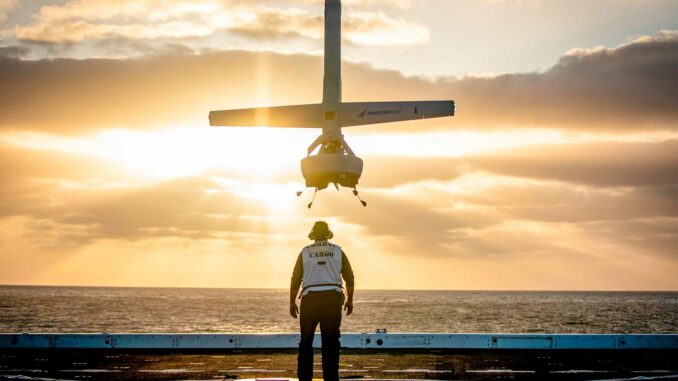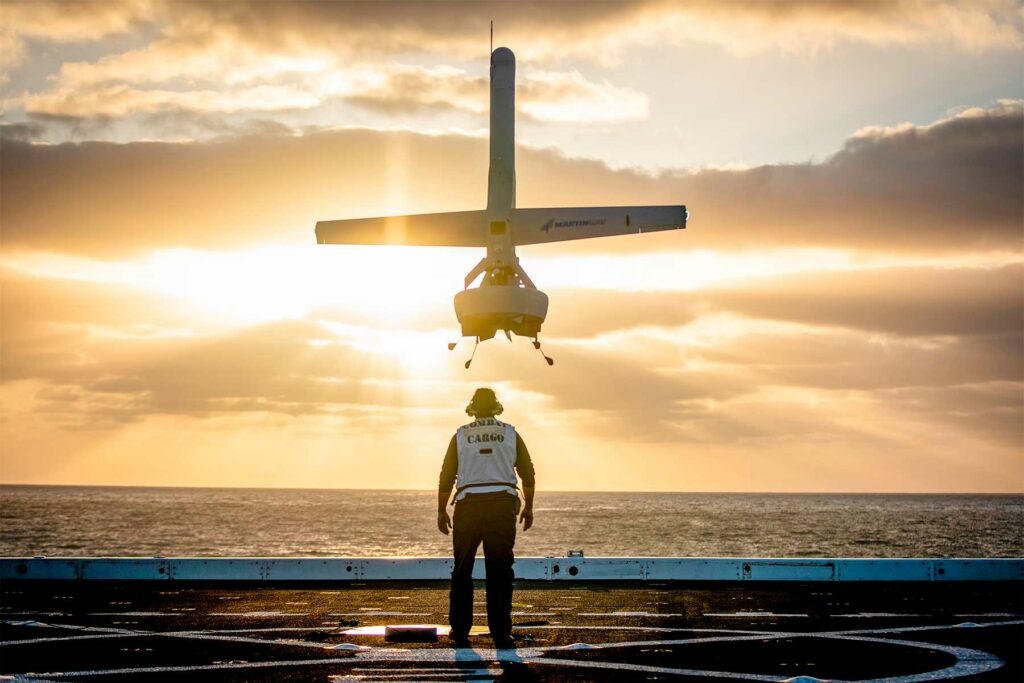
Shield AI and JSW Group join forces to produce V-BAT drones in India, strengthening the country’s autonomy in the defense sector.
Shield AI, an American company specializing in drones and artificial intelligence, has joined forces with the Indian conglomerate JSW Group to produce V-BAT drones in India. This agreement is part of the Atmanirbharta initiative, aimed at increasing India’s military autonomy. With an investment of 90 million dollars (around 84 million euros), a production, assembly and maintenance site will be created, consolidating India as a key player in the manufacture of UAVs for military use.
Transforming India’s defense sector
Over the past decade, India has been reducing its dependence on defense imports. According to the Indian Ministry of Defense, 65-70% of military equipment used to be imported. Today, around 65% of this equipment is produced locally, with 21% of production carried out by the private sector.
The agreement between Shield AI and JSW is part of this dynamic. By establishing a local supply chain and an advanced manufacturing center, this agreement helps to strengthen India’s ability to produce its own military equipment, while reducing logistics costs and procurement lead times.
V-BAT UAVs, with their vertical take-off and landing capabilities, offer flexible solutions for military missions traditionally carried out by helicopters or higher-class UAVs, but at much lower costs.
The role of V-BAT UAVs in the military landscape
The V-BAT, a versatile Group 3 UAS UAV, can perform reconnaissance, surveillance and targeting missions at a fraction of the cost of traditional aircraft and helicopters. Weighing around 45 kg, it can carry a 5-kg payload and offers an 8-hour flight autonomy.
Currently used by the US Marines, this drone stands out for its ability to operate in restricted spaces, making it suitable for complex terrain, such as mountainous or urban areas. Thanks to the integration of artificial intelligence, it can carry out autonomous missions, reducing the need for operational personnel and human risks.
The introduction of these drones in India could transform military strategies by enhancing local and international operations capabilities while optimizing defense budgets.

Atmanirbharta: a strategy for industrial autonomy
The agreement between Shield AI and JSW Group reflects the objectives of the Atmanirbharta program, launched to encourage local production and attract foreign investment in the defense sector. This program includes financial incentives, such as dedicated investment funds, to encourage collaborations with foreign companies.
Local production of V-BAT UAVs will enable India to reduce its dependence on international suppliers. According to Shield AI, this initiative will position India as a global manufacturing hub for drone technology, meeting the needs of both the Indian armed forces and international markets.
In 2023, India’s military spending reached $81.4 billion (around 75.8 billion euros), ranking it third in the world after the USA and China. Greater local production could enable these resources to be better allocated.
Economic and technological implications
The project represents an initial investment of $90 million over two years. This sum will be used to build a state-of-the-art plant, train a skilled workforce and develop a local supply chain. This should generate direct and indirect employment, strengthening the local economy in the regions concerned.
On the technological front, this collaboration brings advances in artificial intelligence and autonomous systems to the Indian defense industry. It also paves the way for similar partnerships for other military equipment.
The global military drone market, estimated at $12 billion in 2022, is expected to reach $26 billion by 2030, with a compound annual growth rate of 12.7%. India’s position as a key producer could capture a significant share of this booming market.
Strategic outlook for India
The AI-JSW Shield agreement aligns with India’s strategic ambitions. In addition to reducing imports, it could strengthen its ability to export military technologies. It could also improve national resilience in the face of regional tensions, particularly in areas such as Ladakh or the border with Pakistan.
In addition, local production of V-BAT UAVs could foster economies of scale, enabling India to offer competitive UAVs to other developing countries. This would strengthen its diplomatic influence and position in strategic alliances.
War Wings Daily is an independant magazine.